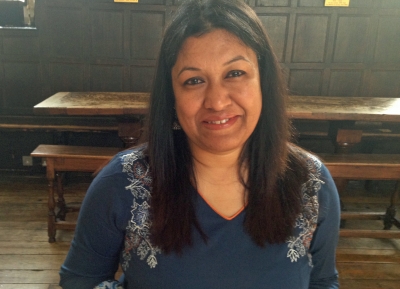
Madhumita Das was invited to the (US) National Conference of Health and Domestic Violence, 19-21 March 2015, where she presented on engaging men and boys in violence prevention. Her paper focused on experience and learning from the Parivartan programme, a sports-based approach to shifting norms and behaviours around violence against women and girls.
To implement this programme in slum areas of Mumbai, ICRW-ARO adapted a US model entitled “Coaching Men into Boys”. Now, taking the learning back to the USA, questions arose about differences:
- in focus – Parivartan addresses the continuum of gender norms rather than just perpetration of violence among boys
- in duration – Parivartan sustained the coaching process over several months, while the US version was limited to one or two interactions
- in approach – Parivartan is defined as a transformative process, which has the potential to be sustained and practised, rather than an exchange of knowledge
To talk about personal issues, you need to build rapport between the boys and the coaches. We feel that without reflective dialogue, the programme doesn’t have a chance to shape practice. And what we need in India is real transformation.
Dr Madhumita Das, ICRW-ARO
One of the few non-Americans among +200 delegates at the conference, Dr Das found a receptive audience for the findings from India. She explained the challenges of institutionalising Parivartan within the community. From interviews with coach/mentors two years after the programme finished, ICRW-ARO derived a core insight: if it positively impacts your own life, you keep doing it. The youngsters in the programme wanted to emulate their coaches, young men who provided positive role models. In part, the young coaches were modelling equitable gender norms.
Looking back, Madhumita’s strongest memory of the conference is of guest speaker US Vice President Joe Biden. He made the point that men do not often experience partner violence and need to learn from women. “I’m a fortunate father,” she remembers Vice President Biden saying, “who has an empowered daughter who taught me what needs to change.” That’s the kind of insight that Madhumita Das hopes to hear from Indian politicians in future.
Parivartan for Girls
ICRW-ARO has adapted the Parivartan programme to design and implement Parivartan for Girls, one of STRIVE’s intervention studies. After the conference in Washington, DC, Dr Das took the opportunity to discuss Parivartan for Girls with:
- colleagues from the group that organised the conference, Futures without Violence
- a team from the US State Department who are also working with men and boys, and who propose to keep in touch through the Mission in Delhi
- a group from the Gender Division of the US Department of State, discussing the potential to sustain both programmes
- a Senate official seeking advice on introducing gender work in other countries (Dr Das advised finding an entry point within national programmes, such as the Indian government’s action on child marriage and education for girls).
- participants on a webinar, hosted by Futures Group's Health Policy Program funded by USAID, entitled "Creating Safe Space: engaging with men and boys and women and girls through sports"